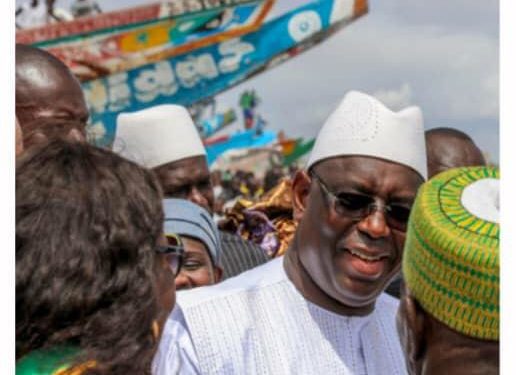Famous Egyptian columnist Souleymane Juda was impressed by President Macky Sall’s memoire, “Le Senegal au Coeur” (Carrying Senegal in the Heart).
Although 95 percent of the country’s population is Muslim, President Sall does not like Senegal to be called a “Muslim country.”
Such a qualification, says the Senegalese head of state, would give the impression to non-Muslims that they are left out of the state, whose cause is to bring everyone under its umbrella without exclusion.
This is the meaning of the book, “Le Senegal au Coeur,” written by President Macky Sall and recently published in Casablanca, Morocco, in which an entire chapter deals with “Enlightened Islam” witnessed by this westernmost country in Africa, south of Mauritania.
It is said that the Senegalese president received several sacrificial lambs, in the form of gifts, from the different regions of Senegal, to be distributed to the people during the feast of Eid al Adha, which is called in Senegal the Great Feast, exactly as it is called in Egypt, where the feast of El Fitr is still called the small feast.
It happened once, when he was a minister, that he had distributed sacrificial sheep to the staff working under him.
He later learned that a person had been excluded from this distribution, and wanting to know the reasons, someone whispered in his ear that this person had a non-Muslim name.
A revelation that has strongly indisposed Macky Sall who responded to the person at the end of the information that the Eid al Kebir had a family and social meaning, more than a religious one.
It is indecent, said Macky Sall, that a person is deprived of something in his society because of his name; it is simply inhuman.
Sall, having obtained two sacrificial lambs, invited the person who was excluded from the gifts and asked him to choose between the sheep and its monetary value.
This one being single, the individual chose the price of the sheep.
By this gesture of extreme simplicity, Macky Sall wanted to make his view of Islam known -an enlightened Islam with no exclusion.
He recalled the fact that Prophet Mohamed (PBUH) had been a balanced intermediary in everything, because after having fraternized the migrants from Mecca and Al Ansar (local population of Medina), he initiated the “Charter of Medina”.
This instituted what looked like a principle of citizenship for the people of Medina, including the Jews, even if they did not appreciate this charter.
But that is another story.
SJ/Los/fss/as/APA


